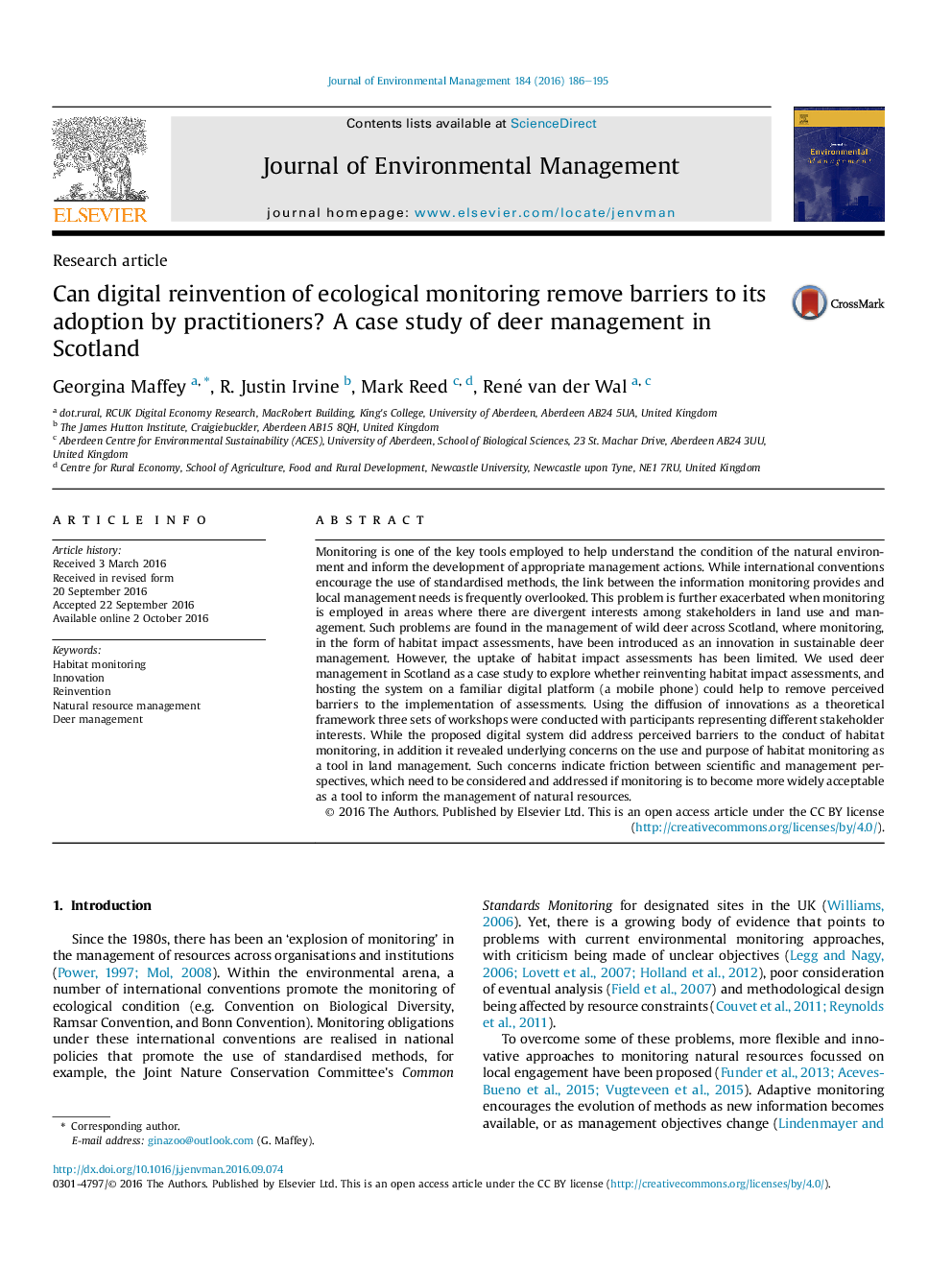| Article ID | Journal | Published Year | Pages | File Type |
|---|---|---|---|---|
| 5117083 | Journal of Environmental Management | 2016 | 10 Pages |
â¢Digital interventions can help to address technical issues with habitat monitoring.â¢There are underlying issues that prevent the broad uptake of habitat monitoring.â¢Friction exists between scientific and management perspectives on monitoring.â¢Habitat monitoring needs to be locally relevant to inform management decisions.
Monitoring is one of the key tools employed to help understand the condition of the natural environment and inform the development of appropriate management actions. While international conventions encourage the use of standardised methods, the link between the information monitoring provides and local management needs is frequently overlooked. This problem is further exacerbated when monitoring is employed in areas where there are divergent interests among stakeholders in land use and management. Such problems are found in the management of wild deer across Scotland, where monitoring, in the form of habitat impact assessments, have been introduced as an innovation in sustainable deer management. However, the uptake of habitat impact assessments has been limited. We used deer management in Scotland as a case study to explore whether reinventing habitat impact assessments, and hosting the system on a familiar digital platform (a mobile phone) could help to remove perceived barriers to the implementation of assessments. Using the diffusion of innovations as a theoretical framework three sets of workshops were conducted with participants representing different stakeholder interests. While the proposed digital system did address perceived barriers to the conduct of habitat monitoring, in addition it revealed underlying concerns on the use and purpose of habitat monitoring as a tool in land management. Such concerns indicate friction between scientific and management perspectives, which need to be considered and addressed if monitoring is to become more widely acceptable as a tool to inform the management of natural resources.
